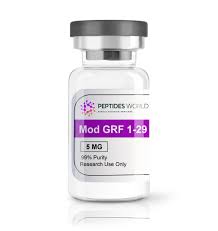Cosmetic peptides have been making waves in the beauty industry for quite some time now. These tiny chains of amino acids have shown remarkable results in reducing fine lines, wrinkles, and pigmentation problems. But what exactly are cosmetic peptides, and how do they work? In this blog post, we will discuss the science behind cosmetic peptides and why they are becoming a popular ingredient in skincare products.
Peptides are short chains of amino acids that act as building blocks of proteins in the body. They play essential roles in various biological functions, such as cell signaling, hormone regulation, and immune response. When it comes to skincare, peptides can penetrate the skin’s surface and interact with specific cells to trigger collagen production or inhibit enzymes responsible for breaking down collagen. Collagen is the protein that gives our skin its structure and elasticity. As we age, our collagen levels decrease, leading to sagging skin and wrinkles.
Cosmetic peptides come in different types depending on their function. For instance, there are signal peptides that stimulate fibroblasts to produce more collagen; carrier peptides that deliver other active ingredients deep into the skin; enzyme-inhibiting peptides that prevent collagen breakdown; and neurotransmitter-inhibiting peptides that reduce muscle contractions responsible for wrinkles.
One of the most popular cosmetic peptides is Matrixyl 3000. It is a blend of two signal peptides – palmitoyl oligopeptide and palmitoyl tetrapeptide-7 – that work together to stimulate collagen production and improve skin texture. Another peptide worth mentioning is Argireline, which mimics the effects of Botox by inhibiting neurotransmitters responsible for muscle contractions. This results in smoother-looking skin without the need for injections.
Cosmetic peptides offer several benefits over traditional anti-aging ingredients such as retinoids or alpha-hydroxy acids. They are less irritating to the skin and can be used even by people with sensitive skin. Peptides also have a lower risk of causing sun sensitivity, making them suitable for daytime use. Additionally, peptides can target specific skin concerns, such as sagging skin or dark circles, unlike other ingredients that have a general anti-aging effect.
Conclusion:
cosmetic peptides are a promising ingredient in skincare products due to their ability to stimulate collagen production and improve skin texture without causing irritation or sun sensitivity. With their targeted approach to specific skin concerns, peptides offer a more effective solution than traditional anti-aging ingredients. As more research is conducted on cosmetic peptides’ efficacy, we can expect to see more innovative products incorporating these tiny but mighty molecules. So the next time you’re shopping for skincare products, look out for those that contain cosmetic peptides and experience the beauty beyond skin deep!


